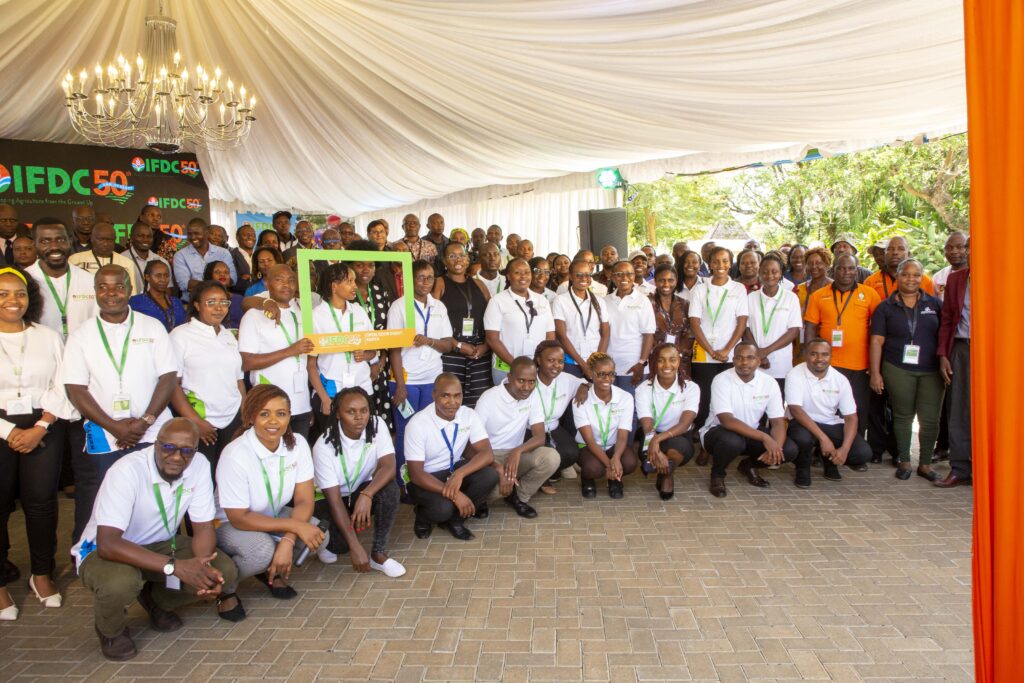
After 15 years of enhancing agriculture in Kenya, the International Fertilizer Development Center (IFDC) opened its doors to major stakeholders by hosting a ground-breaking Open Door Event on March 7 in Nairobi. Commemorating the organization’s 50th anniversary, this vibrant event hosted key partners from the public and private sectors, donor communities, and development organizations.
Following its establishment in 2009, the IFDC office in Kenya began advancing the national agricultural agenda through partnerships with the Ministry of Agriculture and Livestock Development and other relevant stakeholders. By implementing a wide range of programs, IFDC’s interventions have directly and indirectly contributed to Kenya’s economic growth through enhanced agricultural productivity and the establishment of resilient market systems.
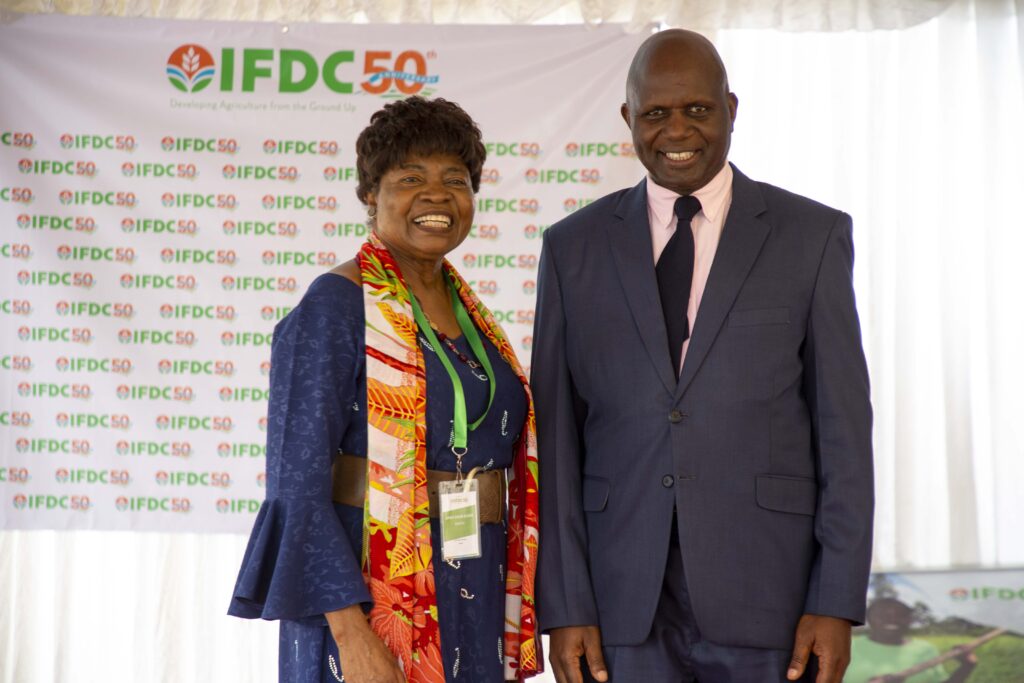
Reflecting on this rich legacy while also setting a course for the future, the Open Door event provided a platform for industry players to engage in meaningful discussions, foster collaborations, and build strategic synergies. The event also showcased IFDC’s innovative technologies, which align with and support Kenya’s national agriculture agenda. From cutting-edge soil health technologies to sustainable farming practices, IFDC has continually developed solutions that contribute to food security and economic development.
“IFDC’s vision is to research, develop, and transfer nutrient use efficiency and soil health technologies to nourish a world of nearly 10 billion people by 2050.”
Henk van duijn, ifdc president and ceo
During her welcome address, IFDC Kenya Country Director Bridget Okumu noted, “We have opened our doors to give our partners a chance to explore our initiatives, engage with our teams, and witness firsthand the impact of our current interventions, which include collating fertilizer statistics, conducting fertilizer and nutrient trials, building the capacity of potato value chain actors, and incubating and accelerating agribusinesses and entrepreneurs.”
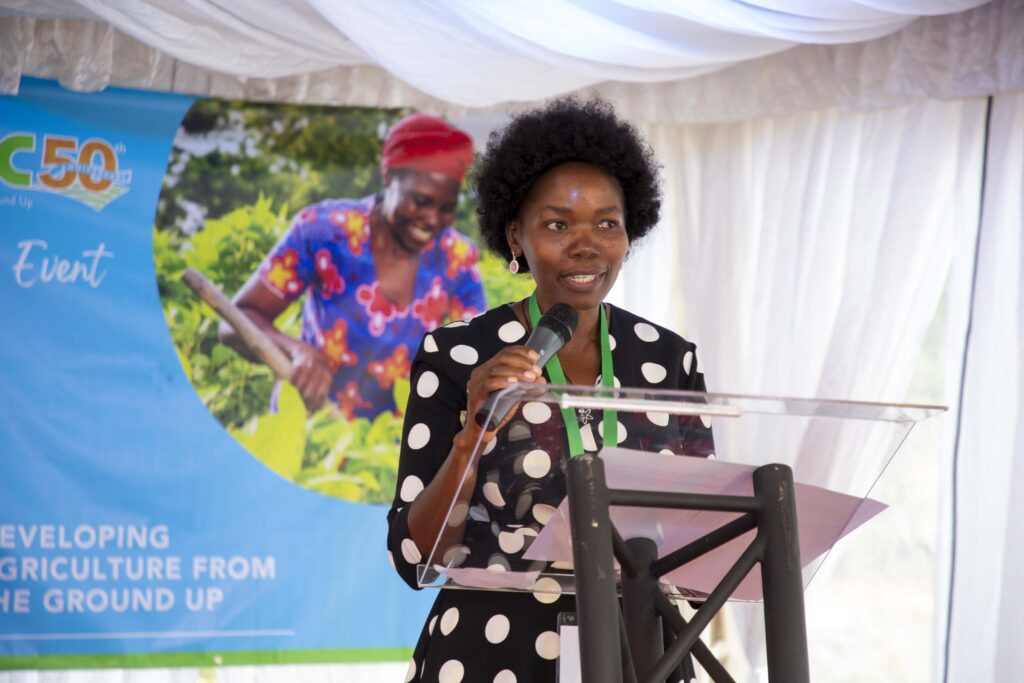
Speaking about IFDC’s mission, President and CEO Henk van Duijn said, “Our goal at IFDC is to offer innovative solutions to challenges in fertilizer and soil health for governments, implementing partners, the fertilizer industry, farmers, agri-entrepreneurs, and investors.”
IFDC’s strategy to implement this mission focuses on developing technologies that restore soil health, catalyzing agricultural yields to ensure that farmers produce more with less, establishing robust market systems that enable farmers to manage obstacles and capitalize on opportunities, strengthening policies and regulations, sharing important knowledge and data, and improving technical skills in the public and private sectors.
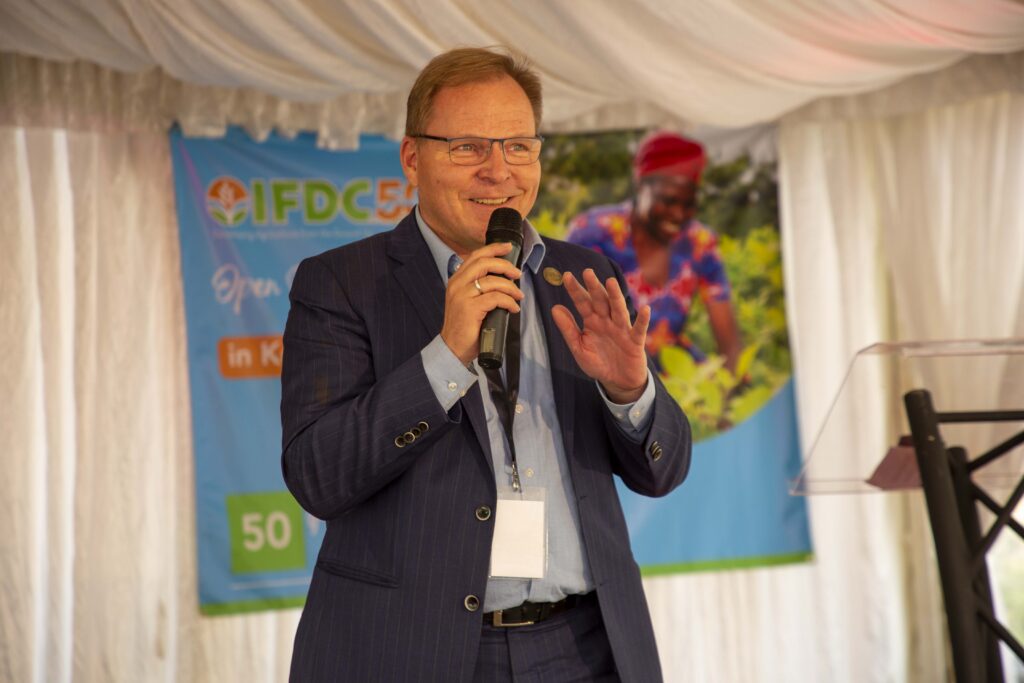
Dr. Gilbert Muthee, Director of Agribusiness and Market Development, spoke on behalf of Dr. Paul Ronoh, the Principal Secretary at the Ministry of Agriculture and Livestock Development, observing the importance of cooperation, saying, “IFDC’s collaboration with the Ministry of Agriculture began in the early 1990s with joint projects to privatize and develop fertilizer markets and training programs on agro-input market development.”
Initiated by signing a memorandum of understanding in 2016, this partnership between IFDC and the Ministry of Agriculture continues to boost agricultural productivity in Kenya through the introduction of appropriate technologies such as integrated soil fertility management.
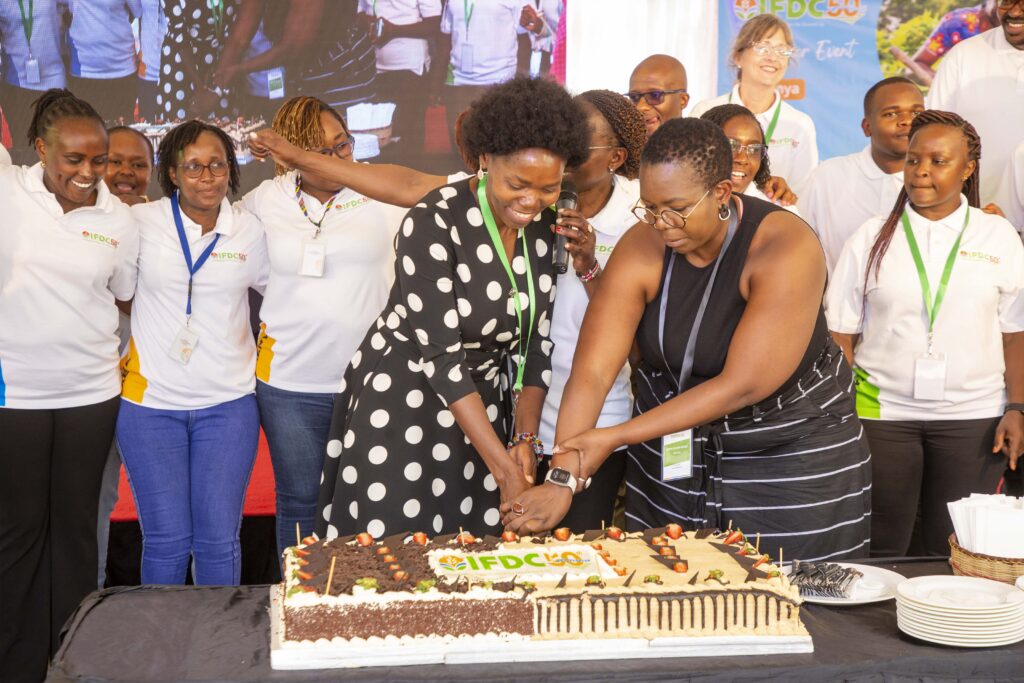
IFDC specifically implements two projects in Kenya to foster market development and soil health improvement in the country. These projects are:
- Toward Sustainable Clusters in Agribusiness through Learning in Entrepreneurship (2SCALE): Funded by DGIS-Netherlands, 2SCALE focuses on supporting agribusiness clusters built around business champions, developing products and markets for local consumer markets, preferably at the base of the pyramid.
- SOILS-Space to Place: The SOILS-S2P initiative is funded by the USAID Bureau for Resilience, Environment, and Food Security (REFS) to develop and deploy pan-African space-to-place decision support tools that sustainably improve soil fertility, with a medium- and long-term focus on enhancing nutrient uptake and use efficiency through hyper-localized soil fertility and soil health recommendations.
On behalf of Dr. Ronoh, Dr. Muthee further noted that concerted interventions by all stakeholders in the agriculture sector are needed to improve soil health. These collaborative efforts to achieve better soil health, he concluded, will ultimately lower farmers’ costs of production and create a sustainable farming system that can regenerate itself.
Affirming Dr. Ronah’s remarks, Professor Ruth Oniang’o, former IFDC board member and winner of the 2017 Africa Food Prize, pointed out that partnership is crucial to a self-reliant and food-secure Africa.




